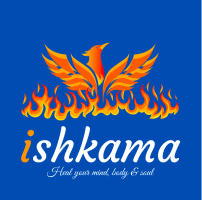Sadly, Stress and anxiety is on the increase in the the world today. Stress is an integral part of 21st century life and how we deal with it can have a significant effect on our health and well-being.
So if you are feeling stressed you are certainly not alone. All you need is a massage, but should you go for a standard foot massage or try reflexology (and what the heck is the difference, anyway)?
Here’s the scoop.
So, What is Reflexology?
The science of applying pressure to specific locations on the hands and feet is known as reflexology. Reflexology is a sort of complementary therapy that holds that certain points on the feet (and hands) correspond to different muscles or organs in the body.
A reflexologist will use pressure on these sites to relieve tension, increase circulation, and promote health in the affected area of the body. Assume you’ve been having problems with your ears; a reflexologist might focus on the base of the little toe.
Heart issues? The middle of the foot. Look to the big toe for back problems.
Several studies have found that reflexology can relieve pain and psychological symptoms including tension, stress and anxiety, as well as improve relaxation and sleep. Given its low risk, reflexology may be a viable option if you’re looking for relaxation and stress alleviation.
Complementary Therapies:
As the name implies, complementary therapies, such as acupressure, supplement rather than replace orthodox medicine. It is prudent to inform both your complementary therapist and your medical doctor about the illnesses for which you are seeking treatment.
Many of the benefits provided by complementary therapies have clearly grown in popularity through time and are now generally acknowledged, with some even being covered by health insurance.
So, what exactly are complementary therapies? There are several of them, including but not limited to:
- Reflexology
- Meditation
- Yoga
- Reiki
- Acupressure
- Acupuncture
- Massage
- Aromatherapy
So how does a Reflexologist’s work differ from that of an Acupressurist?
To begin, reflexology and acupressure are both non-invasive techniques of bodywork in which pressure is administered to certain points or zones on the body to alleviate pain and other problems.
However, acupressure points do not necessarily correspond with reflexology sites. Both are “reflex” therapies in that they use places on the body to impact other regions of the body.
While reflexology employs reflexes on the feet, hands, and ears in an organized pattern approximating the shape of the human body, acupressure uses over 800 reflex points identified along energy lines called meridians that run the length of every organ of the complete body.
Acupressure is a branch of traditional Chinese medicine in which bodywork is coupled with herbal prescriptions and conversations about nutrition and lifestyle.
Reflexology is based on ancient Chinese, Indian, and Middle Eastern traditions. Massage of the foot, lower leg, and hands is part of reflexology. We Reflexology Therapists believe that every body component, organ, and gland corresponds to a certain region on the foot.
There is a favorable effect on the relevant part of the body when gentle to firm pressure is applied to specific reflexes. The only pressure that is tolerated by the individual is used; the techniques are highly calming and relaxing. To summarize, a Reflexologist’s purpose is to relieve tension by using the foot as a guide.
Because stress impacts every part of our lives, being on the receiving end of having one’s tension removed makes us relaxed, and so happy and healthy again. Take charge of your happiness by taking charge of your well-being.
At Ishkama, we are on a mission to assist anyone in need of mental health care. We assist our clients with the best Reflexology therapy.
We also assist our clients with many more complementary therapies like Yoga, Meditation, Reiki, and many more. Feel free to approach us.

